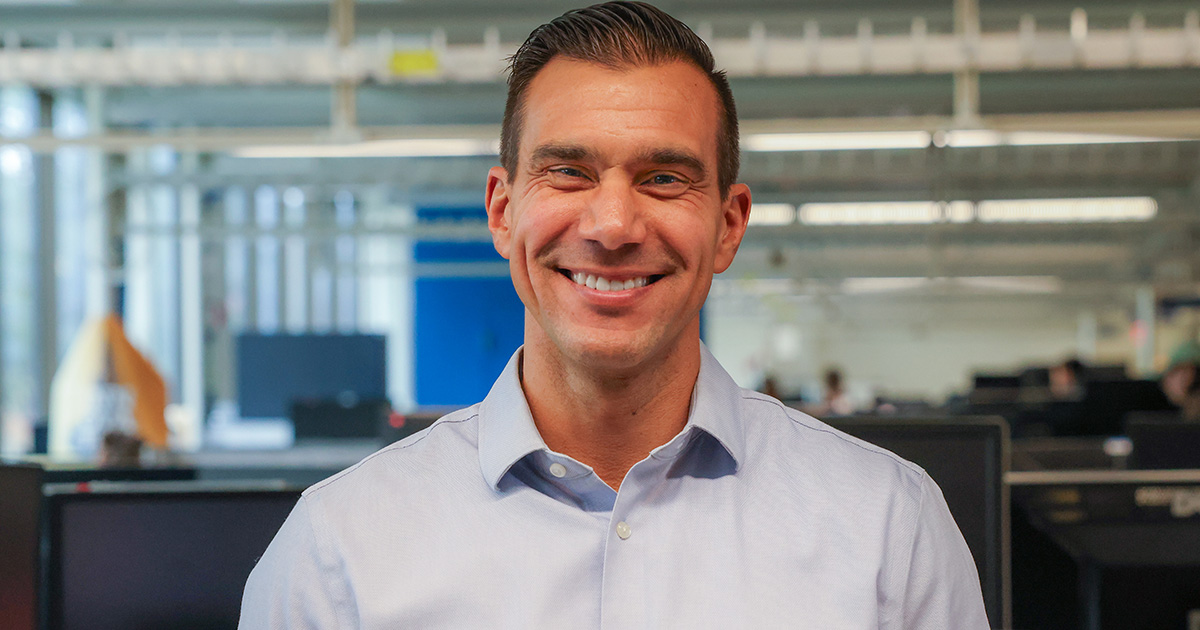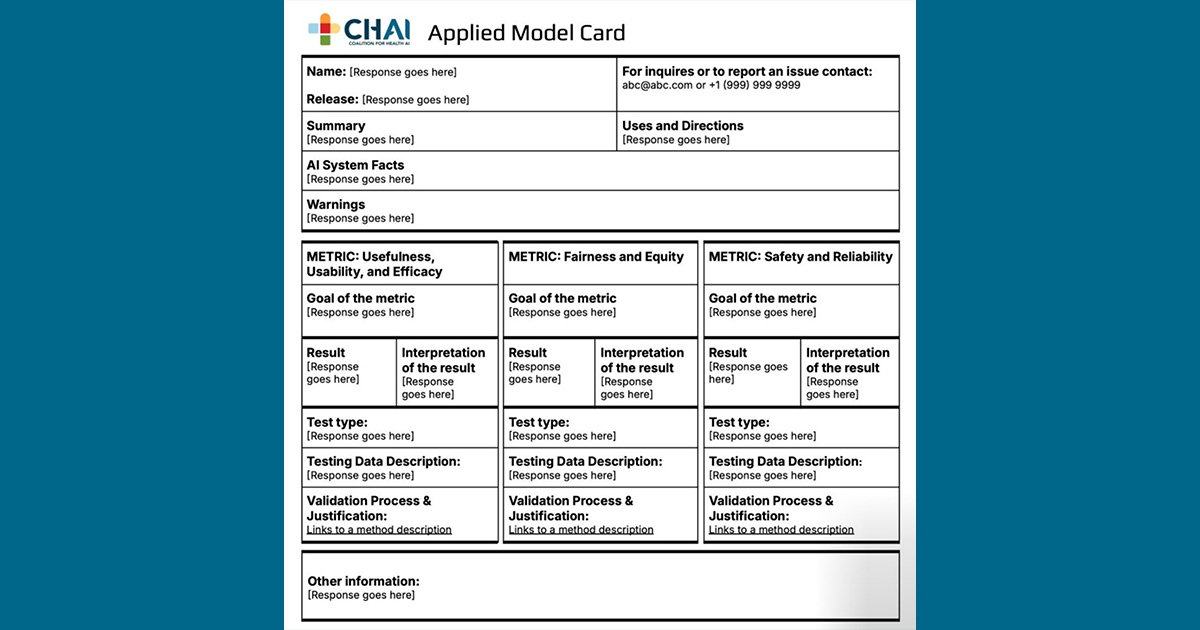Artificial Intelligence

As the artificial intelligence policies developed under the Biden Administration come into focus and a new inauguration approaches, one healthcare AI leader says he's optimistic about the future of public-private partnerships in the space.

In the year ahead, a new president and new policies won't be the only changes in store as artificial intelligence, cybersecurity, virtual care, digital therapeutics, reimbursement and more continue to evolve.

The Coalition for Health AI is offering its Applied Model Card artificial intelligence transparency tool on GitHub to build "the kind of trust that we need," says its CEO Dr. Brian Anderson.

Fight voice call fraud and strengthen patients’ trust in your brand.

The sprawling health system believes artificial intelligence should never replace the judgment of clinicians and must be carefully assessed, says Dr. Daniel Yang, who offers a closer look at Kaiser's successful rollout of a genAI tool for clinicians, among other insights.

The health system's proprietary model offers a clinically validated approach to identifying behavioral health patterns and risk stratification to help guide more targeted decision making and improve care, the company says.

Drive operational efficiencies and support clinical decision-making.

After resolving how it will review updates to previously approved artificial intelligence-enabled medical devices, the agency will release its full draft proposal for market submissions.

Julia Strandberg, executive vice president and chief business leader of connected care at Royal Philips, told MobiHealthNews she anticipates continued mergers, partnerships and AI innovation in 2025.

Through a recently completed multipronged red-teaming effort, the agency said it will develop repeatable testing datasets that can be used to evaluate large language model tools and services in the future.

